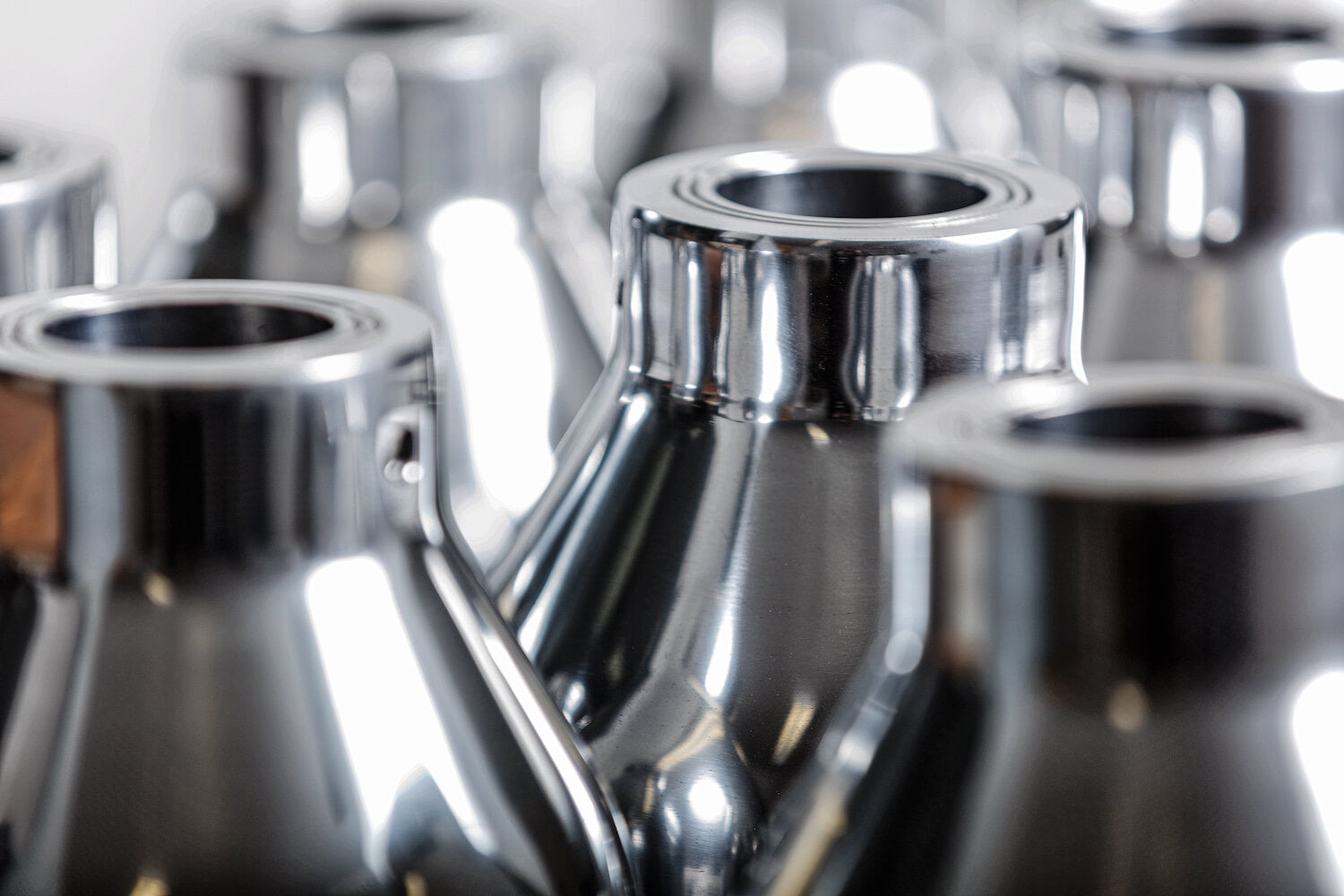Published - 12th Apr 2021

Precision metal components can be produced in a variety of ways, including machining and casting.
Casting is a precision manufacturing process capable of meeting high specifications and finishes. Modern casting processes are controlled, repeatable and consistent, and used extensively in industries such as defence, aerospace, marine, medical, energy, automotive and other safety-critical sectors.
Casting is also a cost-effective solution, often offering lower piece prices than machining from solid. The majority of castings undergo post-processing, which often includes finish machining and surface treatments.
The right production process for your component will depend upon a number of factors, including:
Many of the components we produce undergo a CNC machining operation post-casting to add features such as drilled holes, and to meet requirements for tight dimensional tolerances and excellent surface finishes in specific areas of the components, for example sealing faces. Haworth Castings provides in-house machining via its dedicated CNC machining facility in Basingstoke, Hampshire and has an exemplary track record of producing fully-finished, precision-engineered castings for the most demanding industry sectors. For example, we create geometrically-complex components for customers in the high-performance automotive sector, helping to reduce vehicle weight while retaining key mechanical properties; and for the defence sector where quality, integrity and reliability are key.
The best way to cast your component will depend on the specification, volume and timelines. Haworth Castings specialises in sand and gravity-die, whilst our sister company Investacast offers investment casting and pressure die casting. We encourage our customers to consult with us at the early design phase so that we can support them with design-for-casting, and advise on the most appropriate engineering solution for their project brief, budget and schedule.
Machining is a subtractive manufacturing process in which metal is mechanically cut and drilled away from a billet or bar to leave a final component. Once the cutting tools are set up, complex 3D parts can be shaped on many axes. Using advanced computer software to control the tools, CNC machining delivers high levels of accuracy and repeatability.
For many applications casting will be the most suitable and cost-effective choice. However, certain applications may necessitate the use of CNC machining, for example when specific grades of material are required, or when the environment in which the component operates dictates that the component must have certain mechanical properties, excellent surface finish and/or incredibly tight dimensional tolerances.
Machined parts can be produced within hours of creating a CAD model, much faster than the initial set up for casting. This makes it a good solution for the production of prototypes, and in new product development when timelines are tighter. Machining may also be the best choice for initial production ramp-up, even if your intention is to use casting for mass production.
That said, advances in modern technology such as 3D printing can be used alongside traditional casting processes to shorten the new product development cycle.
As part of Expromet, a group of advanced precision casting and machining businesses, Haworth Castings has a vast amount of expertise on the best way to produce different components. We offer sand and gravity die casting; our sister company Investacast offers investment casting, pressure die casting, forging and a range of other metal forming processes; and sister company Metaltech Precision offers advanced CNC machining and fabrication services.
Expromet Technologies Group can offer you the right technical solution whatever your application. We are always ready to advise on the best production method for your components, and are proud to provide a one stop solution for your casting and machining needs. To find out more, contact us on 01794 512685 or email: sales@haworthcastings.co.uk.
If you have a project, talk to our experienced sales team
Contact us